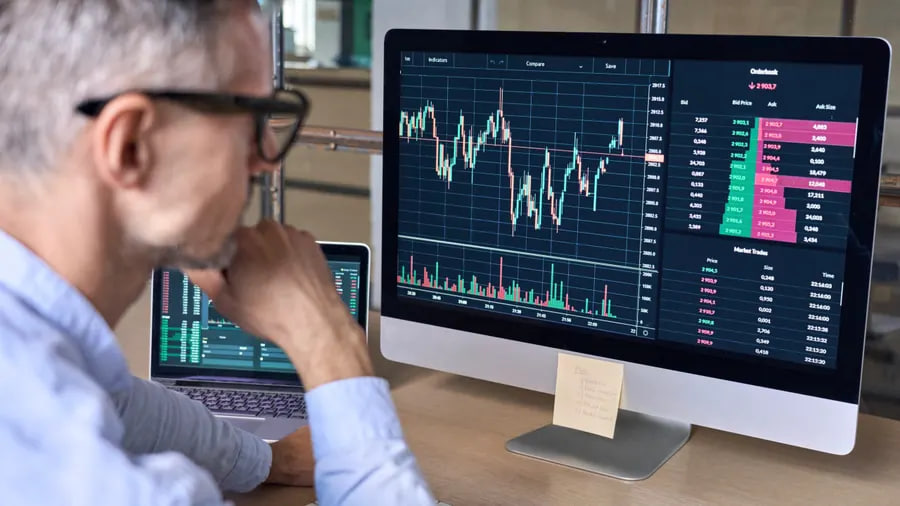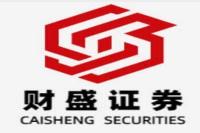Momenta: The Autopilot Company Pushing Beyond Moore's Law with its Cutting-Edge Deep Learning Approach
Meta Description: Momenta, a leading Chinese autonomous driving company, is revolutionizing the industry with its innovative "end-to-end" deep learning approach. Learn how their unique "short-term memory" and "long-term memory" model is dramatically reducing the cost and time required to train autonomous driving systems.
Imagine a world where cars drive themselves, navigating complex traffic scenarios and adapting to unpredictable conditions with ease. This vision, once relegated to science fiction, is rapidly becoming reality thanks to the tireless efforts of companies like Momenta.
Momenta, a leading Chinese autonomous driving company, is at the forefront of this revolution, pushing the boundaries of what's possible with its groundbreaking "end-to-end" deep learning approach. Unlike traditional autonomous driving systems that rely on a series of separate modules for perception, planning, and control, Momenta's approach integrates these functions into a single, unified model. This paradigm shift has resulted in a more efficient and robust system, capable of learning and adapting in real-time.
The End-to-End Revolution
The concept of "end-to-end" has taken the AI world by storm, transforming how we approach tasks across various domains. In natural language processing, we see the rise of large language models like ChatGPT. In autonomous driving, "end-to-end" models are becoming the new standard, with companies like Tesla pioneering this approach.
Momenta's "End-to-End" Advantage
While many companies claim to be using "end-to-end" models, their implementations often differ. Momenta stands out from the crowd with its unique "short-term memory" and "long-term memory" architecture. This ingenious approach significantly reduces the cost and time required to train the model, making it a game-changer for the industry.
Here's how it works:
- Short-Term Memory: The "short-term memory" component focuses on rapid training using perception (DDLD) and planning (DDOD) modules. This allows for quick validation of the data and algorithms used, ensuring their accuracy and effectiveness.
- Long-Term Memory: Once the "short-term memory" has validated the best algorithms and data, the information is transferred to the "long-term memory" component. This final "end-to-end" model benefits from the refined data and proven algorithms, leading to a highly efficient and robust training process.
Think of it like human learning: We first acquire knowledge through short-term memory, testing and refining it before transferring valuable information to our long-term memory for permanent storage. Momenta's model mimics this process, making it incredibly efficient and cost-effective.
The Cost of Autopilot
While the concept of "end-to-end" is appealing, the reality is that it demands massive amounts of data and computational power. This translates to a significant cost burden for companies developing these systems.
Tesla, for example, has invested billions of dollars in building its own data centers and acquiring high-performance GPUs to support its "end-to-end" autopilot development. Their massive investment demonstrates the substantial resources required to train and deploy these models.
Momenta's Cost-Effective Solution
Momenta's innovative approach with its "short-term memory" and "long-term memory" architecture has proven to be a game-changer in terms of cost. They have managed to reduce training costs by a factor of 10 to 100 compared to traditional methods. This significant cost reduction makes their technology accessible to a wider range of companies, accelerating the adoption of autonomous driving solutions.
Momenta's Data-Driven Autopilot
Momenta's success goes beyond its innovative deep learning approach. They have built a robust data-driven system, iterating through five generations of algorithms to address the "long tail" problem in autonomous driving. This refers to the countless rare but crucial scenarios that autonomous vehicles must be able to handle.
Momenta's data-driven approach allows them to automate the identification and resolution of these "long tail" scenarios, significantly improving the robustness and safety of their systems.
The Path to Scalable L4
Momenta's vision is to achieve scalable L4 autonomous driving, meaning their system can be deployed across diverse environments and conditions. They believe that data is the key to unlocking this goal, estimating that at least 100 billion kilometers of real-world driving data are needed to validate a truly scalable L4 system.
This is where their "two-legged" product strategy comes into play. Momenta leverages real-world driving data from its partnerships with leading automotive manufacturers, using this data to train and improve their algorithms. This data-driven approach accelerates the learning process, allowing them to rapidly adapt and improve their systems.
Breaking Moore's Law
Momenta believes in "Moore's Law" for autonomous driving, where the cost of hardware decreases by half every two years, while the performance of software increases tenfold every two years. This exponential growth in capabilities makes the future of autonomous driving incredibly exciting.
Momenta's goal is not merely to keep pace with this rapid evolution but to surpass it. Their unwavering commitment to research and innovation has positioned them as a leader in the field, attracting partnerships with some of the world's leading automotive manufacturers, including General Motors, Mercedes-Benz, and Toyota.
Momenta's Investment Landscape
Momenta's success has attracted significant investment from both leading automotive companies and prominent venture capital firms. Key investors include:
- Automotive Giants: General Motors, Mercedes-Benz, Toyota
- Investment Firms: Temasek, IDG Capital, GGV Capital
- Internet Giants: Tencent, Alibaba, Xiaomi
This impressive lineup of investors highlights Momenta's enormous potential in the autonomous driving industry.
Momenta's Legacy
Since its inception in 2016, Momenta has established itself as a leading player in the autonomous driving sector. Their commitment to innovation, data-driven approach, and cost-effective solutions have set them apart from the competition.
By pushing the boundaries of technology and embracing a "two-legged" strategy, Momenta has paved the way for scalable L4 autonomous driving. The company is on track to become a global leader, shaping the future of transportation and transforming how we navigate the world.
Key Concepts: A Deep Dive into Momenta's Innovation
1. End-to-End Deep Learning:
Momenta's "end-to-end" deep learning approach represents a paradigm shift in autonomous driving technology. Instead of using separate modules for perception, planning, and control, Momenta integrates these functions into a single, unified model. This approach leads to greater efficiency and robustness, enabling the system to learn and adapt in real-time.
2. "Short-Term Memory" and "Long-Term Memory" Architecture:
Momenta's unique architecture divides the training process into two distinct stages, "short-term memory" and "long-term memory." This approach significantly reduces the cost and time required to train the model, making it more accessible and efficient.
- Short-Term Memory: Focuses on rapid training using perception and planning modules, allowing for quick validation of the data and algorithms used.
- Long-Term Memory: Benefits from the refined data and proven algorithms from the "short-term memory" component, resulting in a highly efficient and robust final model.
3. Data-Driven Approach:
Momenta's success is heavily reliant on its data-driven approach. They have iterated through five generations of algorithms to address the "long tail" problem in autonomous driving, which refers to the countless rare but crucial scenarios that autonomous vehicles must be able to handle. This data-driven approach allows them to automate the identification and resolution of these challenges, significantly improving the robustness and safety of their systems.
4. "Two-Legged" Product Strategy:
Momenta's "two-legged" strategy involves leveraging real-world driving data from its partnerships with leading automotive manufacturers to train and improve their algorithms. This approach, combined with their data-driven model, accelerates the learning process, allowing them to rapidly adapt and improve their systems.
5. Moore's Law for Autonomous Driving:
Momenta believes in "Moore's Law" for autonomous driving, where hardware costs decrease by half every two years, while software performance increases tenfold every two years. Their goal is not merely to keep pace with this rapid evolution but to surpass it, constantly pushing the boundaries of technology.
Key Benefits of Momenta's Approach:
- Reduced Training Costs: Momenta's "short-term memory" and "long-term memory" architecture significantly reduces the cost of training autonomous driving systems, making the technology accessible to a wider range of companies.
- Increased Efficiency: Their "end-to-end" approach eliminates the need for separate modules, leading to a more efficient and streamlined system.
- Improved Robustness: By addressing the "long tail" problem through data-driven algorithms, Momenta has created a more robust and reliable system capable of handling unexpected scenarios.
- Accelerated Learning: Their "two-legged" strategy, leveraging real-world driving data, accelerates the learning process, allowing for rapid adaptation and improvement.
- Scalable L4 Autonomous Driving: Momenta's goal is to achieve scalable L4 autonomous driving, meaning their system can be deployed across diverse environments and conditions.
The Future of Autonomous Driving with Momenta
Momenta is a company that is not afraid to push the boundaries of what's possible. Their innovative approach to autonomous driving, combined with their commitment to data-driven solutions, positions them as a frontrunner in the industry. As the world embraces a future of self-driving vehicles, Momenta is poised to play a defining role, shaping the future of transportation and changing the way we navigate the world.
Frequently Asked Questions
Q1: What is Momenta's main focus in autonomous driving?
A1: Momenta's primary focus is on developing "end-to-end" deep learning solutions for autonomous driving. This approach integrates the perception, planning, and control functions into a single, unified model, leading to a more efficient and robust system.
Q2: How does Momenta's "short-term memory" and "long-term memory" architecture work?
A2: This architecture divides the training process into two stages:
- Short-Term Memory: Rapidly trains perception and planning modules, validating the data and algorithms used.
- Long-Term Memory: Combines the refined data and proven algorithms from the "short-term memory" stage, resulting in a highly efficient and robust final model.
Q3: Why is Momenta's approach more cost-effective than traditional methods?
A3: Momenta's approach significantly reduces the cost of training autonomous driving systems by using its "short-term memory" and "long-term memory" architecture. This eliminates the need for extensive and expensive data collection and processing, making the technology more accessible to a wider range of companies.
Q4: How does Momenta address the "long tail" problem in autonomous driving?
A4: Momenta uses a data-driven approach, iterating through five generations of algorithms to automate the identification and resolution of the "long tail" problem. This involves addressing rare but crucial scenarios that traditional systems might struggle with.
Q5: What is Momenta's "two-legged" product strategy?
A5: Momenta leverages real-world driving data from its partnerships with leading automotive manufacturers to train and improve their algorithms. This approach, combined with their data-driven model, accelerates the learning process, allowing them to rapidly adapt and improve their systems.
Q6: What is Momenta's vision for the future of autonomous driving?
A6: Momenta aims to achieve scalable L4 autonomous driving, meaning their system can be deployed across diverse environments and conditions. They believe that data is the key to unlocking this goal, and their data-driven approach combined with partnerships with leading automotive manufacturers is accelerating their progress toward this vision.
Conclusion
Momenta is a company pushing the boundaries of technology, transforming the autonomous driving landscape with its innovative deep learning approach. Their commitment to data-driven solutions and a "two-legged" product strategy has positioned them as a global leader, paving the way for scalable L4 autonomous driving. As the world embraces a future of self-driving vehicles, Momenta is poised to play a defining role, shaping the future of transportation and changing the way we navigate the world.



